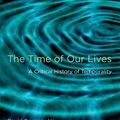
The Time of Our Lives
David Couzens Hoy
The project of all philosophy may be to gain reconciliation with time, even if not every philosopher has dealt with time expressly. A confrontation with the passing of time and with human finitude runs through the history of philosophy as an ultimate concern. In this genealogy of the concept of temporality, David Hoy examines the emergence in a post-Kantian continental philosophy of a focus on the lived experience of the "time of our lives" rather than on the time of the universe. The purpose is to see how phenomenological and poststructuralist philosophers have tried to locate the source of temporality, how they have analyzed time's passing, and how they have depicted our relation to time once it has been—in a Proustian sense—regained. Hoy engages with competing theoretical tactics for reconciling us to our fleeting temporality. After discussing Kant's interpretation of time and Heidegger's productive misreading of Kant, Hoy examines the work of Hegel, Husserl, Heidegger, Merleau-Ponty, and Nietzsche, for theories of the present; draws further lessons from Gadamer, Sartre, Bourdieu, Foucault, and Bergson about the past; and analyzes in addition philosophers Deleuze, Zizek, and Derrida on the politics of the future. Then Hoy considers four existential strategies for coping with the apparent flow of temporality, including Proust's passive and Walter Benjamin's active reconciliation through memory, Zizek's critique of poststructuralist politics, Foucault's confrontation with the temporality of power, and Deleuze's account of Aion and Chronos. The study concludes by exploring whether a dual temporalization could be what constitutes the singular "time of our lives."
Booko found 1 book edition
Product filters
| Product |
Details
|
Price
|
New
|
Used
|
|---|---|---|---|---|
|
|
New: Being refreshed...
Used: Being refreshed...
|
New: Being refreshed...
Used: Being refreshed...
|
Being refreshed... | Being refreshed... |
Booko collects this information from user contributions and sources on the internet - it is not a definitive list of editions. Search Booko for other editions of The Time of Our Lives.



















